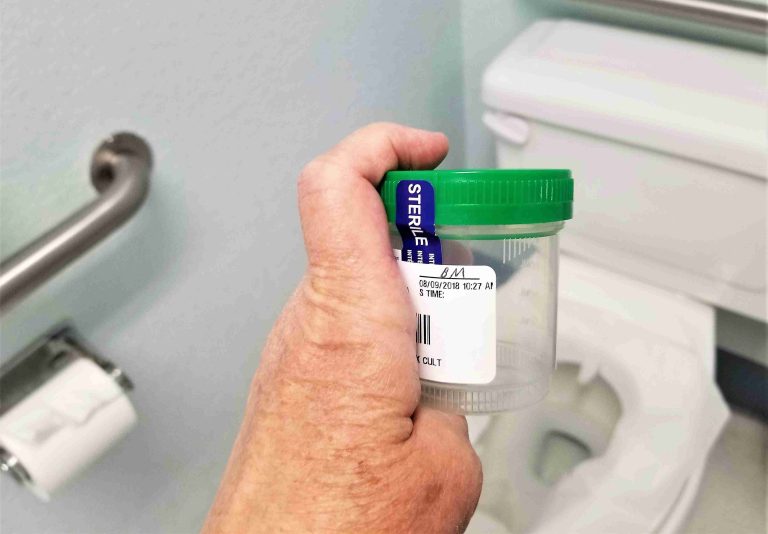A colonoscopy screening is a vital procedure used to detect abnormalities in the colon and rectum, playing a crucial role in the prevention and early detection of colorectal diseases, including cancer. The process involves a long, flexible tube equipped with a camera, known as a colonoscope, being inserted into the rectum and advancing through the colon to examine the lining.
While colonoscopy screenings are often performed as a routine check for those at risk, they can also uncover a variety of conditions, some benign and others more concerning. Understanding common findings during this screening can help you be better prepared and informed about your health.
The Importance of Colonoscopy Screening
Colorectal cancer is one of the most preventable cancers, and colonoscopy screening is a primary method for early detection. For individuals over the age of 50, or those with a family history or other risk factors, regular colonoscopy screenings are recommended as part of a preventive health plan.
Early detection of abnormalities allows for timely intervention, which can significantly reduce the risk of developing advanced colorectal diseases.
During the screening, the physician examines the colon for any signs of disease, including inflammation, bleeding, or growths. The procedure is typically well-tolerated, and in some cases, it can even be therapeutic by allowing the physician to remove abnormal tissue during the screening.
1. Polyps: Pre-Cancerous Growths
One of the most common findings during colonoscopy screening are polyps. Polyps are abnormal growths that appear on the lining of the colon or rectum. While most polyps are benign (non-cancerous), some have the potential to develop into colorectal cancer over time, especially if left untreated.
There are several types of polyps, including:
- Adenomatous polyps (adenomas): These are the most concerning because they have the potential to turn into cancer if not removed.
- Hyperplastic polyps: These are generally considered harmless and unlikely to develop into cancer.
- Sessile serrated polyps: These can be harder to detect and may be more likely to lead to cancer if left untreated.
If polyps are detected during the procedure, the doctor will often remove them for further examination under a microscope. This removal can significantly reduce the risk of colorectal cancer by preventing the polyps from turning malignant.
2. Inflammatory Conditions
Another common finding during a colonoscopy screening is evidence of inflammatory bowel disease (IBD), which includes Crohn’s disease and ulcerative colitis. Both of these conditions cause chronic inflammation in the digestive tract and can lead to serious complications if left untreated.
- Ulcerative colitis: This condition primarily affects the colon and rectum, causing inflammation and ulcers. It often presents with symptoms such as diarrhea, abdominal pain, and blood in stools. Colonoscopy screening can reveal areas of inflammation, ulceration, and bleeding in the colon.
- Crohn’s disease: This condition can affect any part of the digestive tract, but it most commonly impacts the small intestine and colon. The inflammation can cause narrowing of the intestines, leading to blockages, pain, and other symptoms. Colonoscopy screening can detect areas of inflammation and scarring in the colon.
If signs of IBD are detected during a colonoscopy, a biopsy may be taken to confirm the diagnosis and guide treatment options, which typically involve anti-inflammatory medications or immunosuppressive drugs.
3. Diverticulosis
Diverticulosis is another common finding during colonoscopy screenings. This condition occurs when small pouches, or diverticula, form in the wall of the colon. While diverticulosis itself often doesn’t cause symptoms, it can lead to diverticulitis if the pouches become inflamed or infected.
In many cases, diverticulosis is asymptomatic and may only be detected incidentally during a colonoscopy screening. However, if a patient experiences abdominal pain or changes in bowel habits, further treatment may be required to manage the condition.
In some cases, if diverticulitis is suspected, the colonoscopy may reveal signs of inflammation or infection in the affected areas of the colon. Treatment typically involves antibiotics, a high-fiber diet, or, in severe cases, surgery.
4. Hemorrhoids
Hemorrhoids, swollen blood vessels in the rectum or anus, are a very common finding during colonoscopy screening. These are generally harmless and can cause symptoms such as itching, bleeding, or discomfort during bowel movements. While hemorrhoids are not a serious health concern, their presence can sometimes confuse patients, as they may assume that any blood in the stool is caused by hemorrhoids, when in fact, it may be due to other conditions.
During the procedure, a doctor can easily identify hemorrhoids in the rectum or anus. If the bleeding is determined to be caused by hemorrhoids, it is often managed with lifestyle changes, topical treatments, or minimally invasive procedures such as rubber band ligation or sclerotherapy.
5. Colon Cancer
While colon cancer is not a common finding in routine colonoscopy screening, it is a major concern. Colon cancer develops when cells in the colon or rectum begin to grow uncontrollably, forming tumors that can spread to other parts of the body. Colonoscopy screening plays a crucial role in detecting colon cancer early, which improves treatment outcomes significantly.
During the procedure, the physician will look for tumors or abnormal growths in the colon. If cancer is suspected, a biopsy will be taken to confirm the diagnosis. If colon cancer is detected early, surgical removal of the tumor or part of the colon may be an option. In some cases, additional treatments like chemotherapy or radiation may be necessary.
6. Gastrointestinal Bleeding
Another critical finding during colonoscopy screening is gastrointestinal bleeding, which can indicate several underlying conditions, including ulcers, polyps, or even cancer. Gastrointestinal bleeding can be visible in the stool or detected via lab tests. Colonoscopy allows doctors to locate the source of the bleeding and, in many cases, treat it during the procedure.
If bleeding is detected, the physician may use specialized tools to stop the bleeding, such as through cauterization or placing a band around a bleeding polyp or lesion. This can help prevent further blood loss and reduce the need for additional interventions.
7. Normal Findings
It’s important to note that not all colonoscopy screenings will result in concerning findings. Many people undergo colonoscopies and receive a clean bill of health, with no significant abnormalities detected.
A normal colonoscopy result means that the colon is healthy, with no signs of cancer, polyps, or other conditions. This is a reassuring outcome for individuals who have undergone the screening and is a reminder of the importance of regular screenings in preventing colorectal disease.
Conclusion
A colonoscopy screening is a vital tool in maintaining colon health and detecting early signs of disease. Common findings during this procedure include polyps, inflammatory conditions like Crohn’s disease or ulcerative colitis, diverticulosis, hemorrhoids, and, in some cases, colon cancer or gastrointestinal bleeding. While some of these conditions are benign and manageable, others can be more serious and require timely intervention.
If you’re due for a colonoscopy screening, it’s essential to discuss any symptoms you’re experiencing with your healthcare provider and ensure that you follow any pre-procedure instructions carefully. Early detection through regular screenings can greatly improve your chances of successful treatment, especially if any abnormalities are found. Stay proactive with your health—colonoscopy screenings can save lives.







